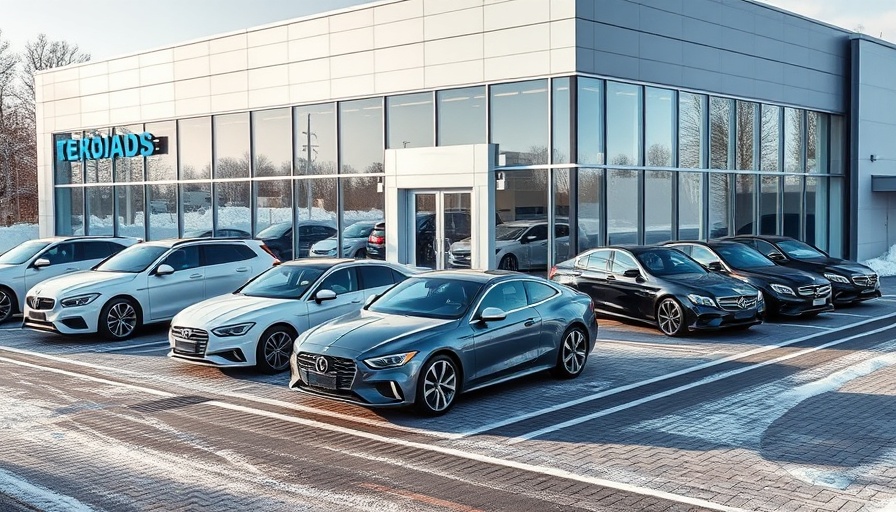
The Decline of Vehicle Prices: A January Rumor or Trend?
As we enter 2025, the automotive market is witnessing a notable shift in pricing dynamics. According to Kelley Blue Book (KBB), the average transaction price (ATP) for new vehicles decreased by 2.2% in January 2025, dropping to $48,641. This decline isn't just a seasonal dip; it's indicative of broader economic trends impacting consumer purchasing behavior and manufacturer strategies.
Contrasting Sales Trends: New vs. Used Vehicles
While new vehicle prices have fallen from the previous month, it's important to highlight that the overall volume of new vehicle sales increased by 5.1% year-over-year, albeit showing a significant decline compared to the peak observed in December 2024. This trend reflects a complex interplay between consumer exuberance for fresh models and the challenging financial landscape that leads buyers to seek better deals.
Incentives and Pricing Strategies: A Double-Edged Sword
In January 2025, manufacturers ramped up incentives to attract buyers, with the average sales incentive reaching $3,486—equivalent to 7.2% of ATP. This contrasts sharply with the previous year's average at 5.6%. Such aggressive pricing strategies represent a shift as dealers attempt to manage increasing inventories while responding to the lowered monthly sales volumes that inevitably follow the holiday rush.
Luxury Sales Decline: Exploring Brand Performance
For many luxury brands like Audi and BMW, January's sales were drastically lower compared to December, some reporting drops exceeding 50%. This drastic fluctuation is largely tied to seasonal buying patterns and offers an example of how demand for luxury vehicles can influence overall market conditions. Interestingly, Jeep vehicles saw a nearly 9% year-over-year drop in ATPs, indicating challenges within its pricing strategy in a competitive market.
Electric Vehicles: Constant Amid Shifting Prices
Interestingly, while other categories of vehicles are experiencing fluctuations in prices, electric vehicles (EVs) have maintained a relatively stable ATP of $55,614 in January. This raises questions about the ongoing appeal of EVs in the ever-evolving market landscape. With their pricing nearly unchanged, it could suggest that EV adoption is less sensitive to short-term economic shifts than traditional vehicles.
Market Insights: Looking Ahead for 2025
As we continue into 2025, the average retail transaction price for new vehicles is projected to trend down overall. Despite the varied performances across vehicle categories, including declines in sales for luxury brands, data shows that consumer spending is set to reach record levels for January, suggesting that while purchase prices are trending downward, the overall expenditure on new vehicles remains robust. With a projected total of over $38.5 billion spent, this indicates a resilient automotive market poised for a complex year ahead.
Conclusion: Implications for Dealership Strategies
The significant changes we are witnessing in the automotive market, particularly in vehicle pricing and sales trends, require dealer principals and GMs to reassess their strategies. Understanding this shift will not only help in inventory management but will enable dealerships to craft appealing financing offers and promotions suited to the evolving market conditions.
 Add Row
Add Row  Add
Add 




Write A Comment